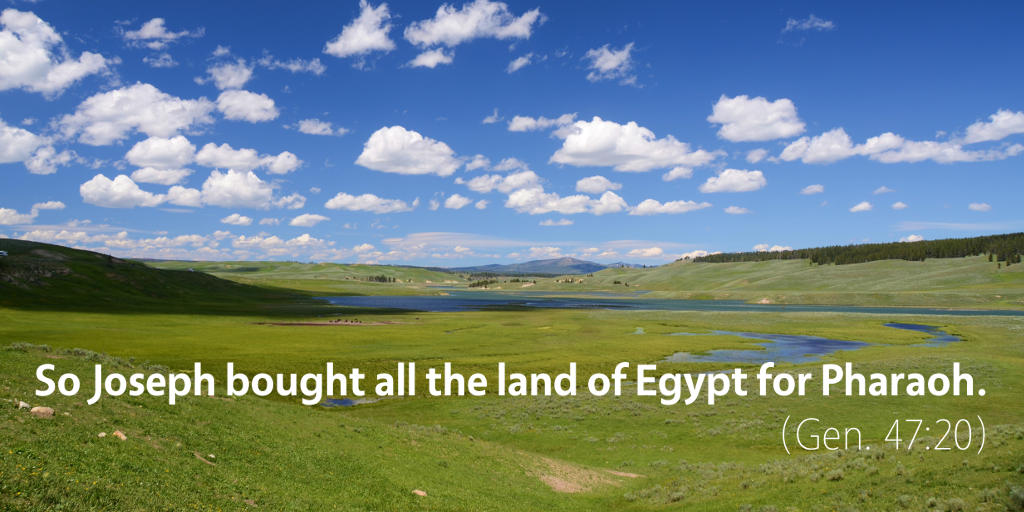Bible Readings for February 14th
Genesis 47 | Luke 1:1–38 | Job 13 | 1 Corinthians 1
As we discussed yesterday, the last few chapters of Genesis are setting up the story we will read in Exodus—a story of God’s redemption of his people that lives at the heart of the rest of the Scriptures. Genesis 47 charts three key events that establish the foundation for the storyline we will encounter in Exodus.
First, God establishes his people in Goshen. Joseph displays his characteristic wisdom in leading Pharaoh to settle the nation of Israel into the land of Goshen, which was decent land for shepherds. Goshen is a good land, although it’s no Canaan.
Second, God uses Joseph’s administrative leadership to put an incredible amount of power and wealth in the hands of Egypt, making Egypt the most powerful nation in the known world. Given the choice of starving or giving up their lands, the people of Egypt (and even the people who live throughout Canaan) willingly trade away their livestock and their lands to Pharaoh in exchange for food (Gen. 47:13–19). In the process, all these people become the servants of Pharaoh, plowing Pharaoh’s fields and paying Pharaoh a heavy tax from their crops (Gen. 47:21, 23–26).
There is significant irony in this plot wrinkle. In Exodus, Pharaoh will boast as though he himself had built his empire, his power, and his wealth. So, when Moses comes to Pharaoh, claiming that the God of the poor, oppressed Hebrew people has told him to let Israel go, Pharaoh scoffs at their request.
But in Genesis 47, we realize that the source of Pharaoh’s wealth and power is actually Joseph, a son of Israel and a servant of the Living God. Everything Pharaoh had was a gift from God, despite the fact that Pharaoh saw it as clear evidence of his own power and glory.
In the same way, it can be a convicting exercise for us to audit the blessings we have received from the hand of God in order to discover the places where we have misattributed God’s gifts as evidence of our own abilities, goodness, and hard work.
Third, when Jacob asks for his bones to be buried in Canaan, God establishes hope that the people of Israel will only live temporarily in the land of Egypt. Although they will dwell in Egypt for a time, Jacob trusts that God will be faithful to keep his promise and to bring the whole nation of Israel back to the inheritance that God had promised to Abraham, to Isaac, and to Jacob.
So as you yourself dwell as a sojourner in this current world, here’s a question for you to consider: Is your hope set on the blessings of your Goshen, or, like Jacob, is your hope set on the fact that one day God will bring you to the eternal inheritance he has promised you in Christ Jesus?
Podcast: Play in new window | Download (4.7MB) | Embed
Subscribe: Apple Podcasts | RSS | More

Scripture quotations are from The Holy Bible, English Standard Version copyright © 2001 by Crossway Bibles, a division of Good News Publishers. Used by permission. All rights reserved.


